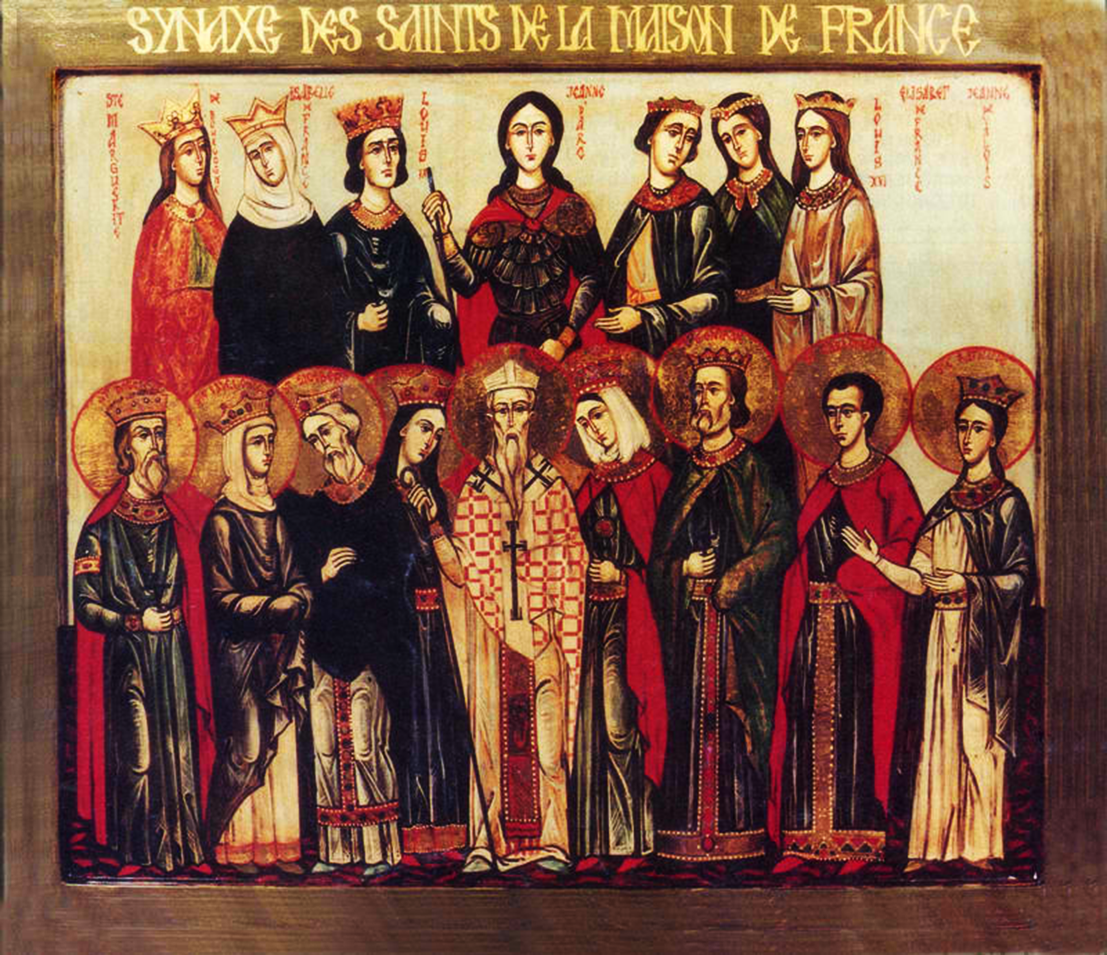Orthodox Saints of the Pre-Schism See of Rome

10th September
AGAPIUS (AGAPITUS) of NOVARA, succeeding St. Gaudentius (22nd January) as Bishop of Novara in Piedmont (north-western Italy), St. Agapius served as the second bishop of that See for thirty years, from 417 until his repose in 447.
AUBERT of AVRANCHES, elected eleventh Bishop of Avranches in Normandy (north-west France) by popular acclaim circa 690, St. Aubert served that See until his repose circa 709. While bishop St. Aubert founded the Abbey of Mont Saint-Michel.
BARYPSABAS, a first century hermit from the East. According to legend St. Barypsabas brought to Europe, a vessel containing the precious blood which flowed from the side of our Lord when He was on the Cross. St. Barypsabas is believed to have suffered martyrdom, most likely in Dalmatia (present-day Croatia).
CANDIDA the YOUNGER, a wife and mother in Naples, remembered for her great holiness of life. St. Candida reposed circa 586, and many miracles are reputed to have occurred at her tomb.
FINNIAN (FINDBARR, WINNIN), St. Finnian was a legendary mediæval Irishman, though perhaps not as well-known as his namesake at the great monastery of Clonard. He travelled to Scotland where he spent time at St. Ninian’s (26th August) monastery at present-day Whithorn, Dumfries and Galloway. St. Finnian later returned to his native land where he became the founding Abbot-Bishop of Movilla (Magh Bile), Co. Down, not to be confused with Moville in Co. Donegal. According to widely accepted tradition, St. Finnian travelled to Rome at some point, returning with a complete copy of St. Jerome’s (30th September) Vulgate. St. Finnian reposed circa 589, and is one of the patron saints of the Province of Ulster, Ireland.
FRITHESTAN, a disciple of St. Grimbald (8th July), St. Frithestan was consecrated Bishop of Winchester by St. Plegmund of Canterbury (2nd August) in 909. He served that See for twenty-three years and was known for his love of the poor and his prayers for the souls of the reposed. Shortly before his own repose in 932, St. Frithestan retired from his See, designating St. Birnstan (4th November) as his successor.
NEMESIAN, FELIX, LUCIUS, ANOTHER FELIX, LITTEUS, POLYANUS, VICTOR, JADER, and DATIVUS, Martyrs of Sigum, nine bishops from Numidia (present-day Algeria), who circa 260, in the persecution of Christians during the reign of the Emperor Valerian (r. 253–260), were arrested, tortured, and finally martyred by being worked to death in local mines.
PETER MARTINEZ, also called St. Peter of Mozonzo, an Abbot of Saint Martin of Antealares in Compostela, Spain, who, circa 986, was consecrated Bishop of Iria Flavia (later the Archdiocese of Saintiago de Compostela). St. Peter reposed circa 1000.
SALVIUS (SAUVE) of ALBI, (Sixth Century), a monk, then abbot, and finally the seventh Bishop of Albi (southern France). Nothing further about St. Salvius’ life can be said with certainty, as there has been a conflating of details with that of two other people also named Salvius, who were more or less contemporaries.
THEODARD of MAASTRICHT, a disciple of St. Remaclus (3rd September) at the the Princely Abbey of Stavelot-Malmedy (Fürstabtei Stablo-Malmedy) in present-day southern Belgium. St. Theodard succeeded St. Remaclus as Abbot and was later consecrated Bishop of Maastricht (south-eastern Netherlands). Whilst traveling circa 670 to meet with Childeric II, King of the Franks (r. 662–675), St. Theodard was murdered.
VERANUS (VÉRAN) of VENCE, a son of St. Eucherius of Lyons (16th November), and for over forty years the sixth Bishop of Vence in Provence (south-eastern France). St. Veranus reposed circa 480.
Prior to the Schism the Patriarchate of Rome was Orthodox, and fully in communion with the Orthodox Church. As Saint John of Shanghai and San Francisco +1966 said “The West was Orthodox for a thousand years, and her venerable Liturgy is far older than any of her heresies”.
Details of British Saints excerpted from Orthodox Saints of the British Isles.
Details of continental saints from these sources.
In many cases there are several spelling versions of the names of saints from the British Isles. I use the Oxford Dictionary of National Biography version as the primary version with the more prevalent version in parenthesis e.g. Ceadda (Chad) of Lichfield.
